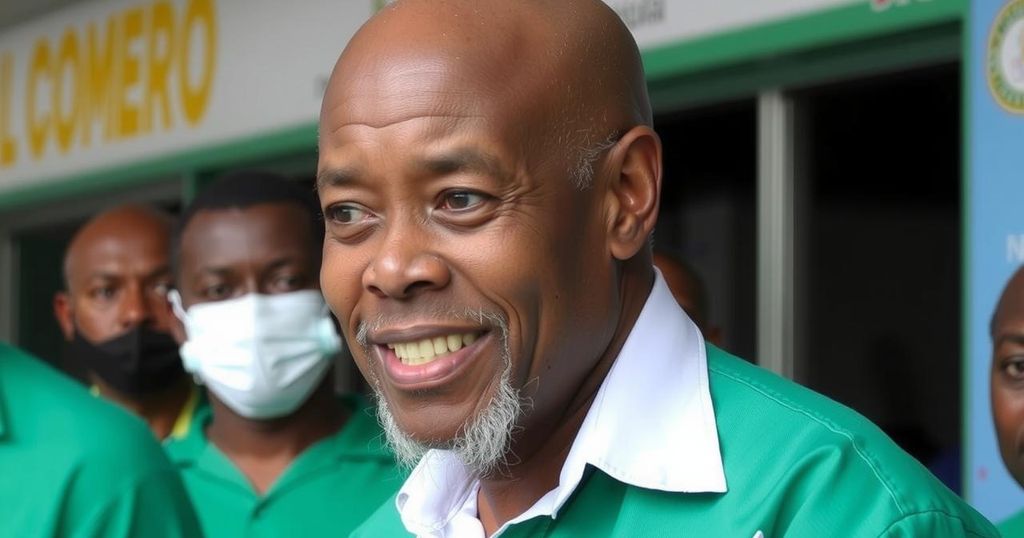Comoros Elections: Opposition Boycotts Amid Concerns of Transparency
Comoros held parliamentary elections amid opposition boycotts citing lack of transparency. Azali Assoumani’s son is a key candidate, while many polling places faced logistical issues. The ruling CRC party is favored to win, raising concerns about electoral integrity in light of past controversies.
On Sunday, the Indian Ocean nation of Comoros held elections to select lawmakers, despite significant opposition boycotts due to concerns about the election’s transparency. President Azali Assoumani’s eldest son, Nour El Fath Azali, is contesting for a legislative seat near the capital, Moroni. Reports indicated that some polling booths experienced delays, and improvised measures were in place, leading to allegations of insufficient voter privacy. The ruling Convention for the Renewal of the Comoros (CRC) party is expected to secure a considerable portion of the votes, with numerous candidates facing no challengers. The elections come in the wake of Azali’s controversial re-election in January 2024, marred by allegations of electoral fraud and subsequent violence.
The Comoros, an archipelago in the Indian Ocean, has a history of political instability, including coups and contested elections. Azali Assoumani has been a central figure in this context, returning to power through a coup in 1999 and subsequently undergoing various electoral challenges. The current electoral cycle is characterized by an opposition boycott and allegations of authoritarian governance, as many candidates choose to participate to prevent a repeat of the uncontested environment seen in the 2020 legislative elections. This political backdrop underscores the importance of these elections, as they will be pivotal in shaping the future governance of the country. The ruling party, the CRC, consolidates power further amidst claims of electoral malpractice, raising concerns for the democratic process in Comoros.
In summary, the recent elections in Comoros underscore deep-seated political tensions involving authoritarianism and electoral integrity. With significant opposition parties choosing to abstain from the vote due to perceived irregularities, the ruling party is poised to retain substantial control over the parliament, continuing a trend of limited competition and democratic challenges. This situation highlights the need for vigilance regarding electoral processes in Comoros to safeguard democratic governance moving forward.
Original Source: www.barrons.com




Post Comment